Can microalgae improve honeybee health?
Thanks to their work as pollinators, bees play an essential role in agriculture. However, modern agricultural practices and climate change mean many bees are becoming malnourished. In the US Department of Agriculture’s Honey Bee Breeding, Genetics, and Physiology Research Laboratory, Dr Vincent Ricigliano is improving bee health by developing pollen substitutes and edible vaccines using microalgae.
Talk like a molecular biologist
Amino acids — molecules which form proteins, the ‘building blocks of life’
Colony — a family of bees
Crop — a commercially grown plant, usually for food
Gene editing — a laboratory technique to add, remove or alter DNA in a gene
Malnutrition — not having enough nutrients
Microalgae — single-celled photosynthetic organisms
Monocrop — a single crop grown across a large area
Nectar — the sugary fluid produced by plants to entice insects to pollinate them
Nutrient — a substance essential for life that must be consumed by an organism
Pathogen — an organism that causes disease, such as a virus
Pollen — the male spores produced by a flower
Pollen substitute — an artificial food given to bees that mimics the nutritional value of pollen
Pollination — the transfer of male pollen to the female part of a flower (the stigma), resulting in fertilisation
Strain — a genetic variant
“One third of our food supply depends on pollinators such as bees,” explains Dr Vincent Ricigliano, a molecular biologist in the US Department of Agriculture’s Honey Bee Breeding, Genetics, and Physiology Research Laboratory. As such, bees are essential for food production.
Why are bees essential for agriculture?
Bees feed on plant nectar (for energy) and pollen (for nutrients). In the process, they transfer pollen between flowers. This fertilises the plant, forming seeds that allow new plants to grow. While wild bees have been pollinating plants for millions of years, modern agricultural practices rely on commercially managed colonies of honeybees (Apis mellifera) to pollinate crops.
Billions of bees are transported around the US every year, following the flowering schedule of different crops. In February, honeybees are taken to California to pollinate almond trees, before being driven to the Pacific Northwest in March to pollinate cherries and apples. At the beginning of April, they are transported across the country to Maine for the blueberry season, before heading to Florida at the end of April to pollinate oranges and lemons. In May, the colonies are taken to the Dakotas, where the bees spend the rest of the year producing honey from clover fields.
Over the course of this 7000+ mile journey, commercially managed honeybee colonies pollinate billions of dollars’ worth of crops, fertilising the plants and resulting in the fruits and nuts that we eat. Therefore, commercial beekeeping plays a vital role in food supply systems. However, bees are under threat.
Why are bees suffering from malnutrition?
“Thanks to modern agricultural practices and climate change, both managed and wild bees are suffering from malnutrition,” says Vincent. Bees thrive on diverse diets containing nectar and pollen from a variety of plants. However, monocrop farming means that bees (both wild and commercial) can only feed on a single species at a time, and climate change is altering when flowers bloom and how much nectar and pollen they produce.
A lack of pollen diversity in a bee’s diet means it lacks the nutrients it requires, leading to malnutrition. And malnourished colonies cannot grow healthily or fight off diseases. As a result, beekeepers must feed ‘pollen substitutes’ to their bees. These mimic the nutritional value of pollen, supplementing the low-quality diet that commercially managed bees eat. Vincent and his team are aiming to make these pollen substitutes more nutritious and sustainable.
How can microalgae act as pollen substitutes?
Vincent is developing pollen substitutes from microalgae (single-celled photosynthetic organisms). “In addition to being a protein source, containing all the amino acids that are essential for bees, microalgae are also a good source of fats that are important for bee health and colony growth,” he says.
Vincent works with beekeepers to test the effectiveness of his microalgae pollen substitutes. They feed the microalgae to bees that are used for commercial pollination of monocrops and monitor the health of the colonies. This includes measuring how colony size changes over time, how many young a colony produces and winter survival rates. “We’ve found that microalgae are a promising feed additive that can provide essential amino acids and fats to honeybees,” says Vincent. “We have also observed that these microalgae diets stimulate the bees’ immune systems, helping them to fight off diseases.”
How can microalgae act as edible vaccines?
To enhance the health benefits of his microalgae pollen substitutes, Vincent uses gene editing techniques to create entirely new strains of microalgae. These engineered strains target the bees’ immune systems to respond to specific pathogens. He describes these engineered microalgae as ‘edible vaccines’, as when bees eat them, not only do they receive all the nutrients they need, but they are also protected against specific diseases.
To test his edible vaccines, Vincent feeds the engineered microalgae pollen substitutes to bees in the laboratory, then deliberately infects them with the viruses the vaccines are designed to prevent. He then measures the bees’ health to check whether the vaccine in the microalgae is effectively stopping the virus. “We’ve discovered that engineered strains of microalgae can help target specific bee pathogens, such as the notorious deformed wing virus, which is linked to the deaths of millions of honeybee colonies worldwide,” says Vincent.
What are the benefits of using microalgae?
Microalgae grow quickly and easily, meaning they could be used to mass-produce pollen substitutes and edible vaccines for bees. “Microalgae production is highly sustainable, removes carbon dioxide from the atmosphere, and does not require pesticides or antibiotics,” says Vincent, highlighting the environmental benefits of creating pollen substitutes and edible vaccines from microalgae. “Overall, our research indicates that microalgae have the potential to sustainably improve bee nutrition and health using resources that do not compete with human food production.” Thanks to Vincent’s work, we can be optimistic about the future of our important honeybee populations.
Reference
https://doi.org/10.33424/FUTURUM469
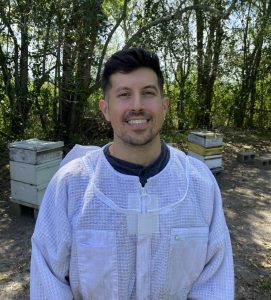 Dr Vincent Ricigliano
Dr Vincent Ricigliano
Honey Bee Breeding, Genetics, and Physiology Research Laboratory, US Department of Agriculture Agricultural Research Service, Baton Rouge, Louisiana, USA
Field of research: Molecular biology
Research project: Developing microalgae as a sustainable and nutritious food for bees
Funders: US Department of Agriculture – National Institute of Food and Agriculture – Agriculture and Food Research Initiative (USDA-NIFA-AFRI), Project Apis m.
About molecular biology
Molecular biology is the study of the molecular workings of life. It focuses on molecules such as DNA (which contains genetic information), RNA (which carries messages and instructions to cells) and amino acids (which build proteins), as well as how these interact with cells. Molecular biology is a wide-ranging field. While Vincent genetically modifies microalgae and examines which amino acid and fat molecules they produce, other molecular biologists might apply biochemistry techniques to improve human medicines or use bioinformatics to understand more about how plants and animals function.
What are the joys and challenges of molecular biology?
Vincent enjoys the combination of field work and laboratory work in his research. “Studying bee molecular biology gives me the best of beekeeping and laboratory experiments.” Most molecular biologists conduct experiments in laboratories before analysing their results on computers. This work is precise and requires attention to detail. “I spend lots of time moving small volumes of clear liquid between test tubes,” says Vincent. “Working at the molecular scale means you can’t physically observe what you’re working on, so you need an imaginative mind to help you visualise what is happening at each step.” Molecular biology research has wide-ranging impacts for medicine and agriculture. “This field helps us understand diseases, how medicines work, and the potential for advanced techniques such as gene editing,” explains Vincent. Molecular biologists are needed now more than ever to understand and solve real-world problems affecting the living things on our planet.
Pathway from school to molecular biology
• Study biology, chemistry and mathematics at school and beyond to build a strong foundation. These subjects will probably be entry requirements for a degree in biological sciences.
• At university, a degree in biology, molecular biology, cell biology, biochemistry, genetics or biotechnology could lead to a career in molecular biology.
• “Look for internships or volunteer opportunities with local farms, research labs or universities to gain hands-on experience,” advises Vincent. “Help out however you can and ask to be taught basic laboratory techniques and how to apply them.”
• “Get involved in agriculture-related extracurriculars activities or projects, like a school garden or a science fair, to apply what you learn in a real-world context,” recommends Vincent.
Explore careers in molecular biology
• Molecular biologists are in high demand to help understand and solve the problems facing the natural world and human populations. You could find yourself protecting food supply chains, preventing diseases or mitigating the impacts of climate change.
• Molecular biologists usually conduct research for universities, governments or private industries.
The American Society of Biochemistry and Molecular Biology has a range of educational and careers resources: www.asbmb.org/education
• The US Department of Agriculture offers student internships: www.usda.gov/youth/career
Keep up to date with molecular biology news and cutting-edge research: www.theconversation.com/global/topics/molecular-biology-1391
Meet Vincent
What inspired you to become a molecular biologist?
I was an imaginative kid; I always liked to make and grow things. This interest in how things work led to a fascination with how the small details of life work. In turn, this led me to molecular biology – the study of life at a tiny scale.
Why have you focused your work on bee health?
I am motivated by a desire to contribute positively to agriculture and food production. Nutrition has an important role in bee health, and pathogens are a main factor involved in bee colony losses. It feels right to focus on these major issues. It is exciting to think about my work positively impacting agriculture by improving honeybee health!
What is your favourite fact about bees?
A honeybee colony is considered to be a superorganism – a group of organisms that work together as a community. Each bee in the colony has a special job. For example, the queen bee is responsible for reproduction (laying eggs) and pheromone production (releasing chemicals that control the colony and keep everything in order). This is similar to how your body contains parts that have their own functions but work together. Just like a person adapting to a new environment, the colony works together to handle changes, such as finding new food sources. This teamwork makes the whole colony act like one big living creature, where every bee is important.
Do you have a question for Vincent?
Write it in the comments box below and Vincent will get back to you. (Remember, researchers are very busy people, so you may have to wait a few days.)
Beekeepers hold a wealth of knowledge about bees, plants and the environment. Discover how scientists and policymakers can use this information to learn more about climate:

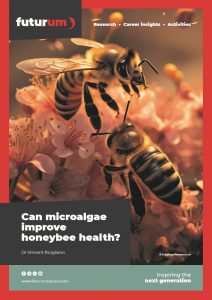
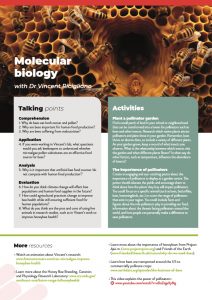
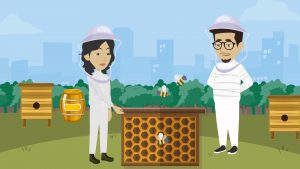
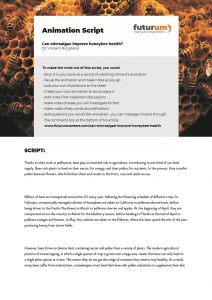
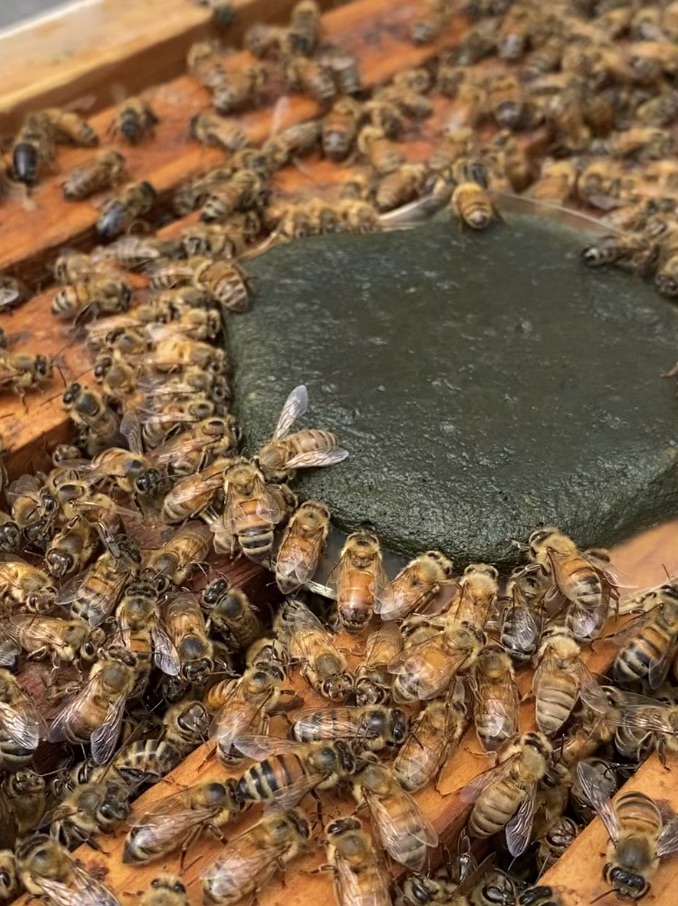
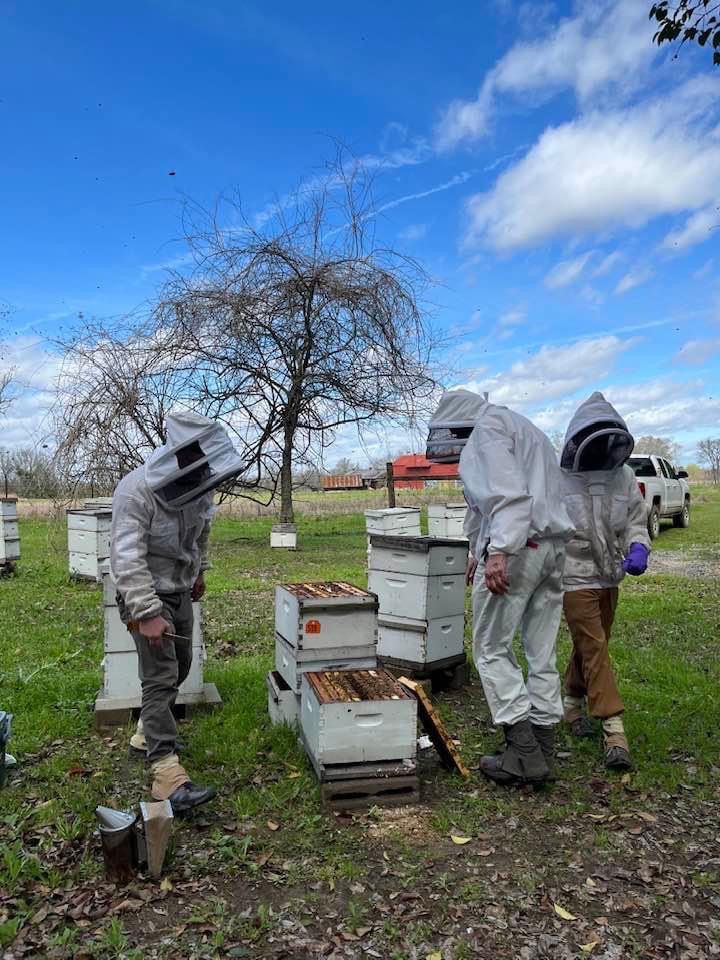
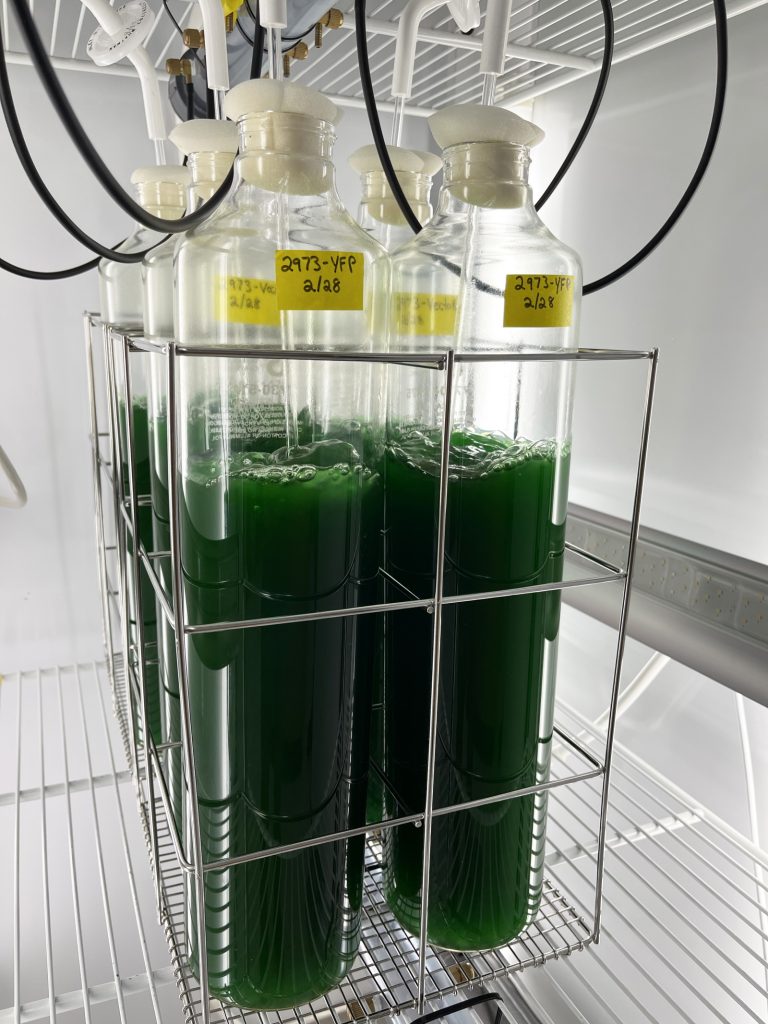
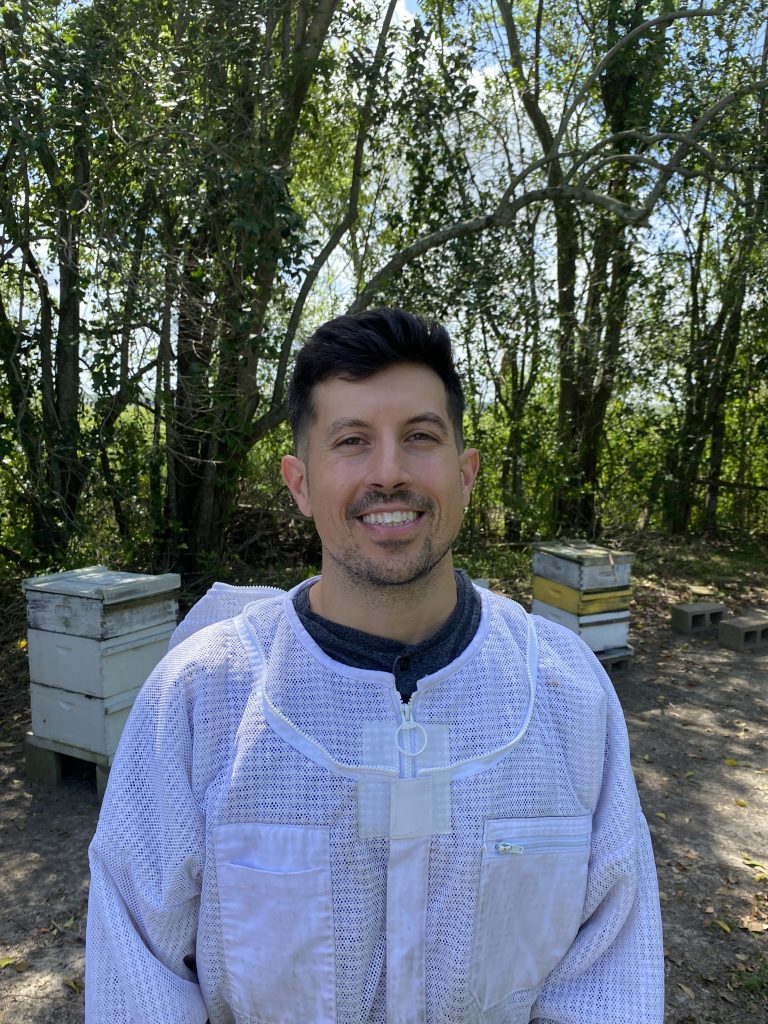

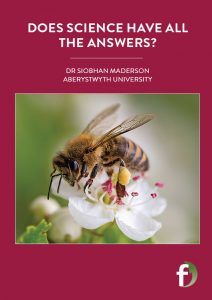
0 Comments